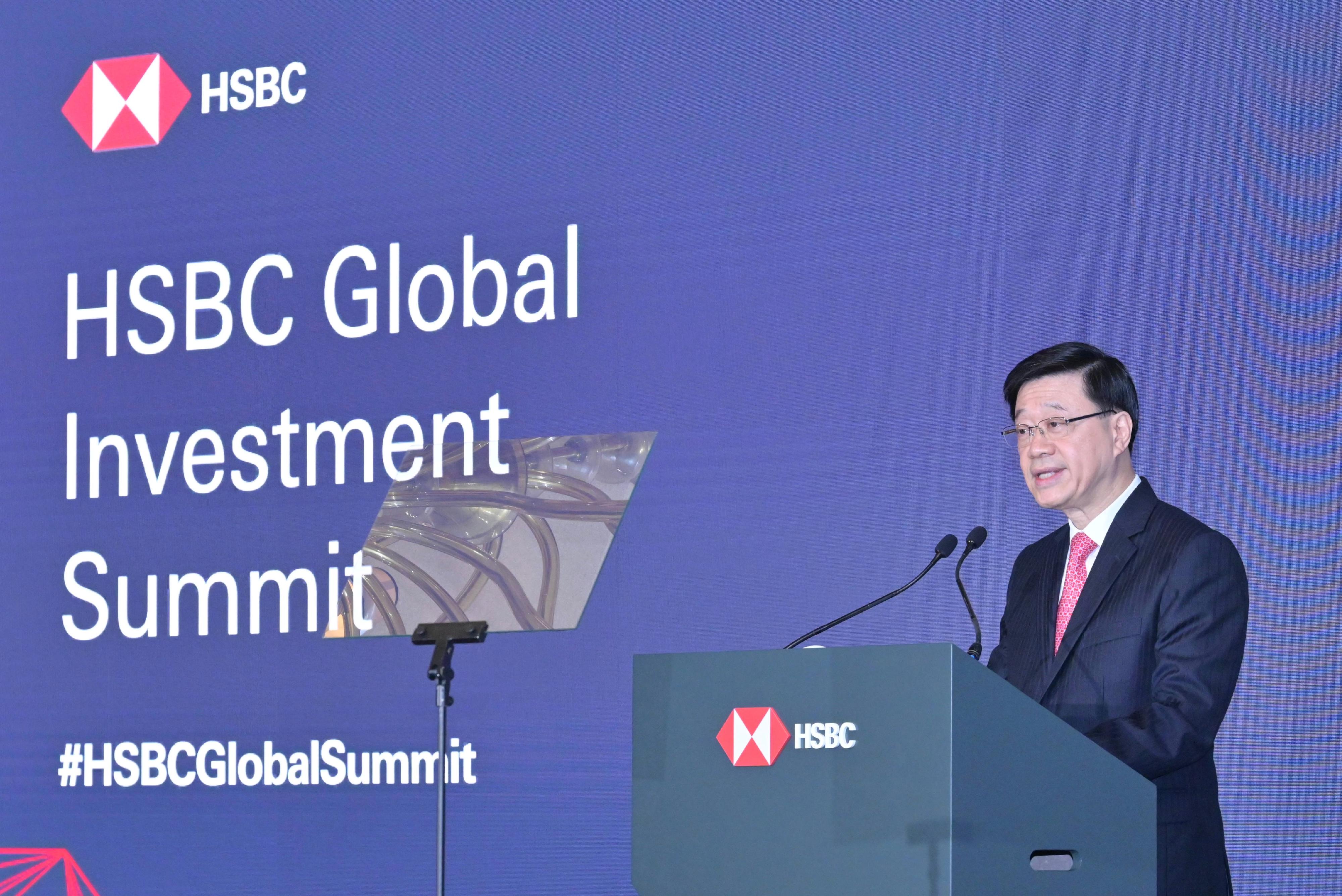Lee: Asset and wealth management sector a policy priority for government

Hong Kong Chief Executive John Lee Ka-chiu pledged to continue reinforcing the city’s status as an international financial center by enhancing its market competitiveness and liquidity, increasing mutual market access with the Chinese mainland, strengthening the city’s role as the world’s offshore renminbi hub, and developing the city’s asset and wealth management sector.
The chief executive delivered the opening speech at the three-day HSBC Global Investment Summit, held in Hong Kong from Monday. The event has attracted 4,000 high-profile institutional investors, corporate leaders and wealth managers from some 40 countries and regions, making it the biggest event that HSBC has ever organized anywhere in the world.
Lee said the special administrative region government is taking a series of measures to promote the sustainable development of the city’s equity market. They include reducing the stamp duty on stock transfers, streamlining the listing regime, targeting specialized technology sectors, and considering measures in the areas of transaction mechanisms, investor services and market promotion.
“At the end of 2023, our stock market had a capitalization of almost $4 trillion, more than 10 times the city’s gross domestic product, and the city remains among the world’s top fundraising destinations,” Lee said.
He stressed that the asset and wealth management sector is a policy priority for the SAR government. “At the end of 2022, we managed nearly $4 trillion in assets, two-thirds of which came from outside Hong Kong. The net inflow of funds domiciled in Hong Kong surged to over $11 billion last year, a year-on-year increase of 93 percent.”
Lee also said the government is striving to attract more global family offices to establish or expand their presence in Hong Kong.
“We are now home to some 2,700 family offices, with the tremendous multiplier effect that family offices can create for Hong Kong. In addition to boosting Hong Kong’s capital market, family offices also stimulate demand for financial and other professional services by creating more high-quality jobs,” he said.
Financial Secretary Paul Chan Mo-po added that the administration will formulate some new measures to boost market liquidity in the next few months, including possible ways to relax the interoperability of risk management products and whether to include renminbi-denominated stocks in the southbound trading of the Stock Connect program.
At the summit, the finance chief said that the population of the Guangdong-Hong Kong-Macao Greater Bay Area is about 87 million, and the per capita GDP is more than $22,000. “If this part of the capital can be attracted to Hong Kong, it will be very considerable.”
Chan also pointed out that the government is currently lobbying foreign companies to list their shares in Hong Kong. “Once listed, there is a chance that these shares will be included in the southbound trading of the stock market connect program. Issuers will be able to obtain international and mainland capital, while mainland investors will be provided with more investment options.”
HSBC Chairman Mark Tucker added: “As the mainland continues to open up its capital market, Hong Kong will continue to play an important role in diversifying asset allocation. HSBC will support Hong Kong in continuing to strengthen its global leadership roles.”
Tucker emphasized Hong Kong can benefit from the mainland’s economic transformation. “Preserving Hong Kong’s role as a ‘superconnector’ (between) the mainland and Asia and the rest of the world, (and preserving) the linked exchange rate system and the common law system, will help Hong Kong continue to become an international financial center.”
The chairman highlighted that Hong Kong can seize the opportunities in the Greater Bay Area by establishing an international talent pool and providing offshore financing solutions.


